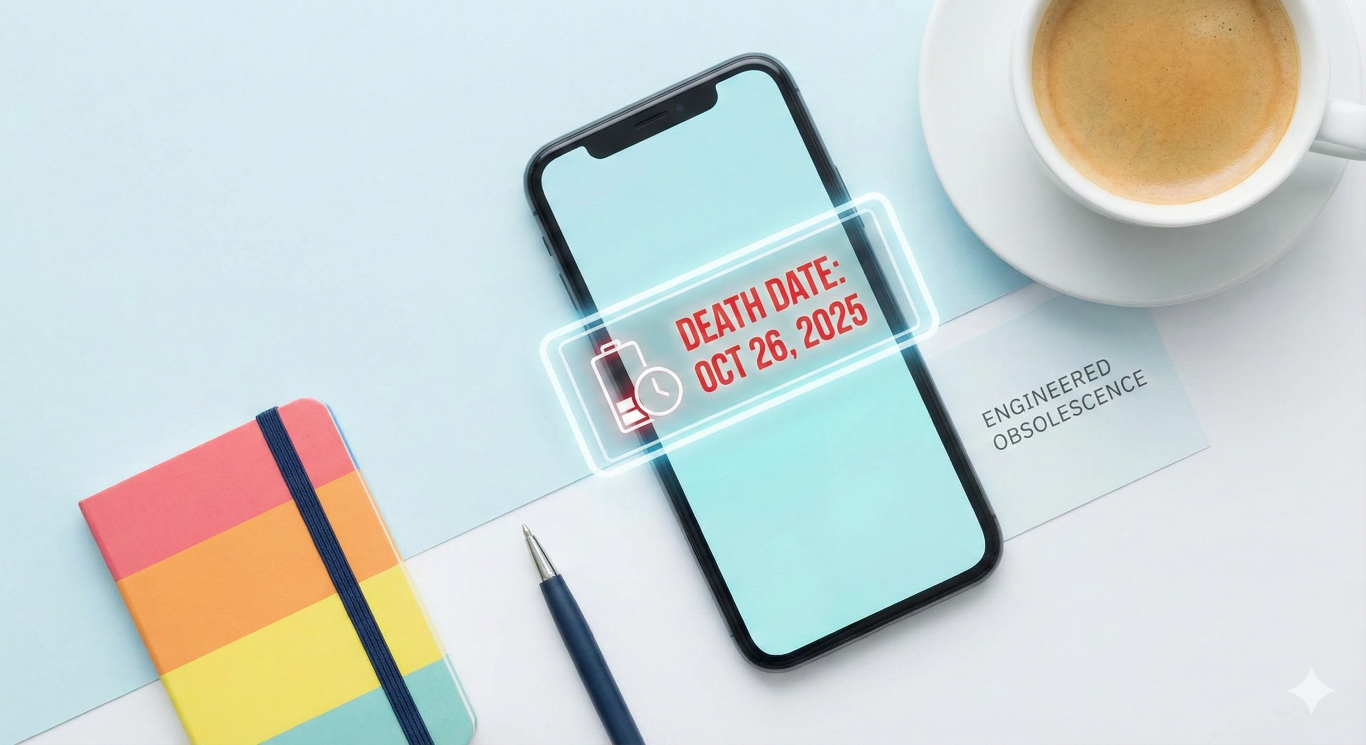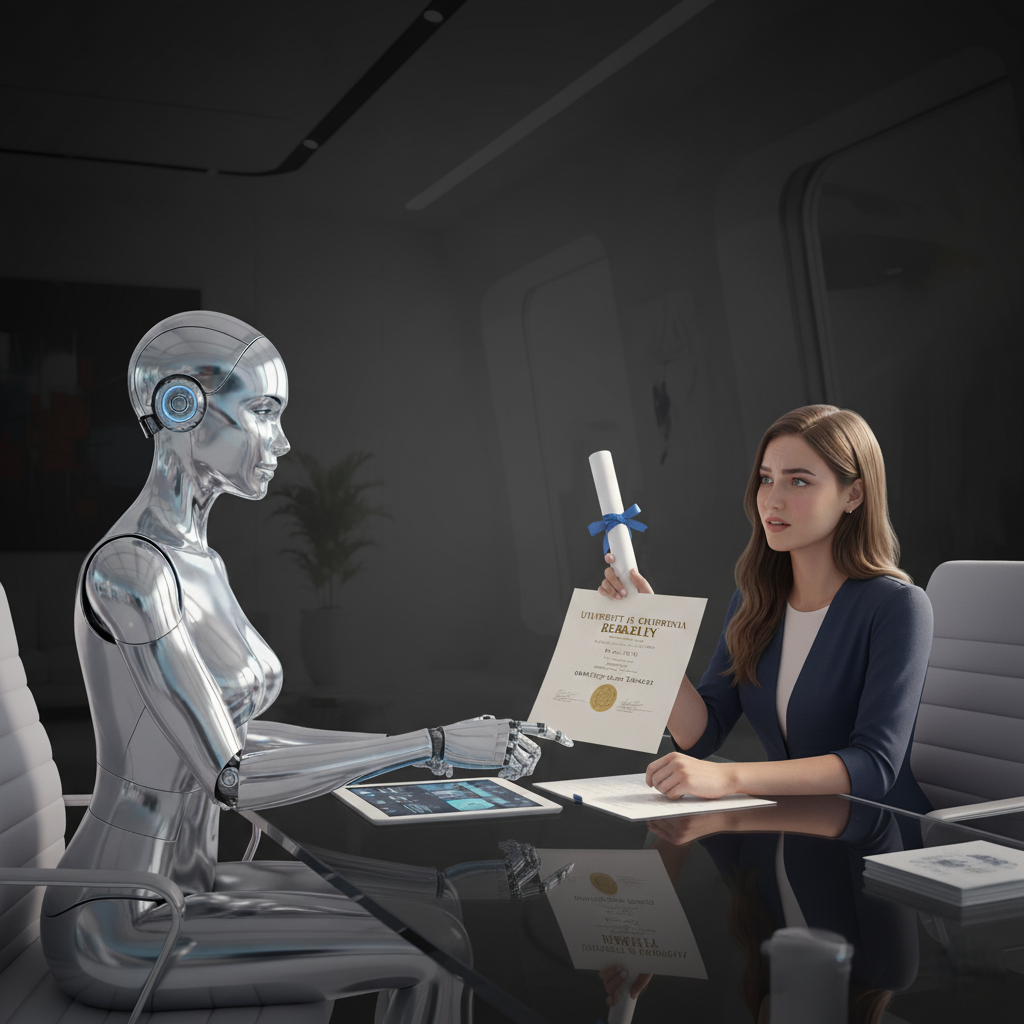Key Takeaways:
- Technology has made us feel reduced to just marketing targets rather than valued individuals, as content becomes more sales-focused and filled with SEO keywords instead of useful information.
- The digital tether of constant connectivity has eroded personal boundaries, as video calling makes it near impossible to skip meetings and technology enables constant availability and accessibility.
- Overuse of technology has shrunk attention spans nearly 50% for adults, destroyed memory and cognition so we feel more android than human.
Technology has transformed daily life in many positive yet subtle ways. Smartphones double as flashlights. TVs recall where you left off watching last night’s show. Bus apps know when the next bus is coming. You can track a pizza delivery to your door. These conveniences feel like miracles.
However, integrating more technology over the past 20 years has also required tradeoffs. You’ve relinquished some competence, memory, independence, and authority to machines. You’ve become anxious about new tech-related problems and angry over issues you previously didn’t know existed.
While tech has benefited your life tremendously, it has also negatively impacted it in key ways. Let’s examine some of the most significant pros and cons of technology on your daily life.
1. You’re Seen as Just Another Sales Target
Every article and video now tries to sell you something rather than provide useful information. You feel reduced to just a marketing demographic as content gets filled with SEO keywords and sales pitches instead of what you actually want to know.
2. You’re No Longer Excused for Being ‘Unavailable’
The digital tether has made it nearly impossible to disconnect from work and social obligations, leading to a culture of constant availability and the erosion of personal boundaries. Video calling means no reasonable excuse exists for skipping meetings anymore. No longer can we use geographical distance as an excuse to miss a meeting. You just stare at your bored face on Zoom for hours instead of being able to duck out. Tech has made meetings completely inescapable despite their pointlessness.
3. You Feel More Robot Than Human
The endless CAPTCHAs you pass to prove you aren’t a robot are ironic. This is because technology has drained your memory and cognition so much that you feel more like an android than a human. Yet you still have to continually confirm you aren’t an AI.
4. You’re Overwhelmed by Irrelevant Opinions
Social networks and algorithmic feeds overwhelm you with idiocy daily. Tech doesn’t just expose you to stupid perspectives – it actively amplifies inanity to the maximum degree possible. You never asked for unlimited access to the absolute dumbest takes imaginable.
5. It’s Killing the Language Expert Within You
AI writing tools have enabled anyone to produce grammatically correct text without human experts. The real need for skilled editors and linguists is disappearing as AI handles grammar and language corrections perfectly.
6. Your Attention Span is Destroyed
Studies show almost half of adults feel that distractions from phones and computers have shrunk their ability to concentrate. What starts as a passing thought often turns into 20 minutes of lazy internet searching, dragging you into pointless online detours. Meanwhile, notifications continually pop up and interrupt. Language learning apps like Duolingo especially bombard you – even disrupting your Italian lessons to essentially remind you to keep practicing Italian. So after using Duolingo for 5 years, you still can’t order coffee in Italy due to constant distractions.
7. Your Posture is Wrecked
You bought a computer stand to improve your posture from sitting at screens all day. But then you needed progressive glasses, which required craning your neck to read. You switched to a laptop, but that also needed raising up. Despite efforts, you still have the spinal curvature of a question mark. An experiment with hourly alerts to stand up failed too since it only interrupted your sleep.
8. You’re Addicted to News and Social Media
A prime example of tech toxicity is anxious doomscrolling for hours a day. Despite knowing real-time disaster coverage worsens depression, your addiction persists. Social media and 24/7 alerts swallow hours tracking unfolding crises – steadily ruining mental health.
9. It Took Away Your Privacy
You’re no longer in control of your online activity. No matter how apps claim security, your data gets harvested and monitored. Tech promised convenience by making you give up personal privacy – a cost you weren’t fully informed of.
10. You’re Helpless Without It
When tech crashes, you realize how much competence you’ve given up. Navigation, entertainment, transactions – there used to be whole independent systems enabling human independence that you’ve lost.
Final Thoughts
While technology has undoubtedly enriched our lives in many ways, it has also introduced a host of new problems. From the erosion of our attention spans and posture to the relentless need to prove our humanity and the inescapability of meetings, technology has reshaped our existence. As we navigate this brave new world, it’s essential to find balance and remember that sometimes, the best way to reclaim our lives from technology is to simply switch off and look up.





